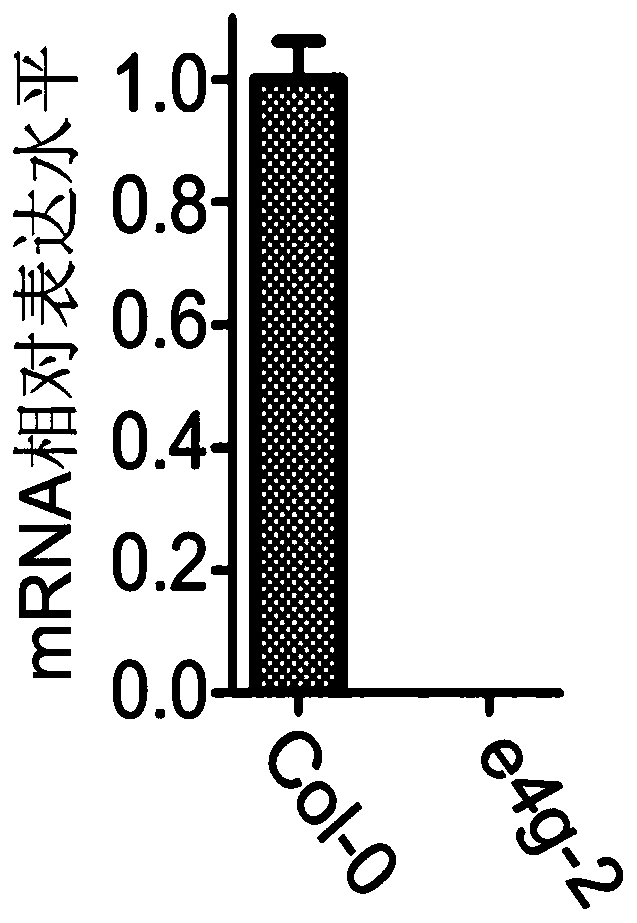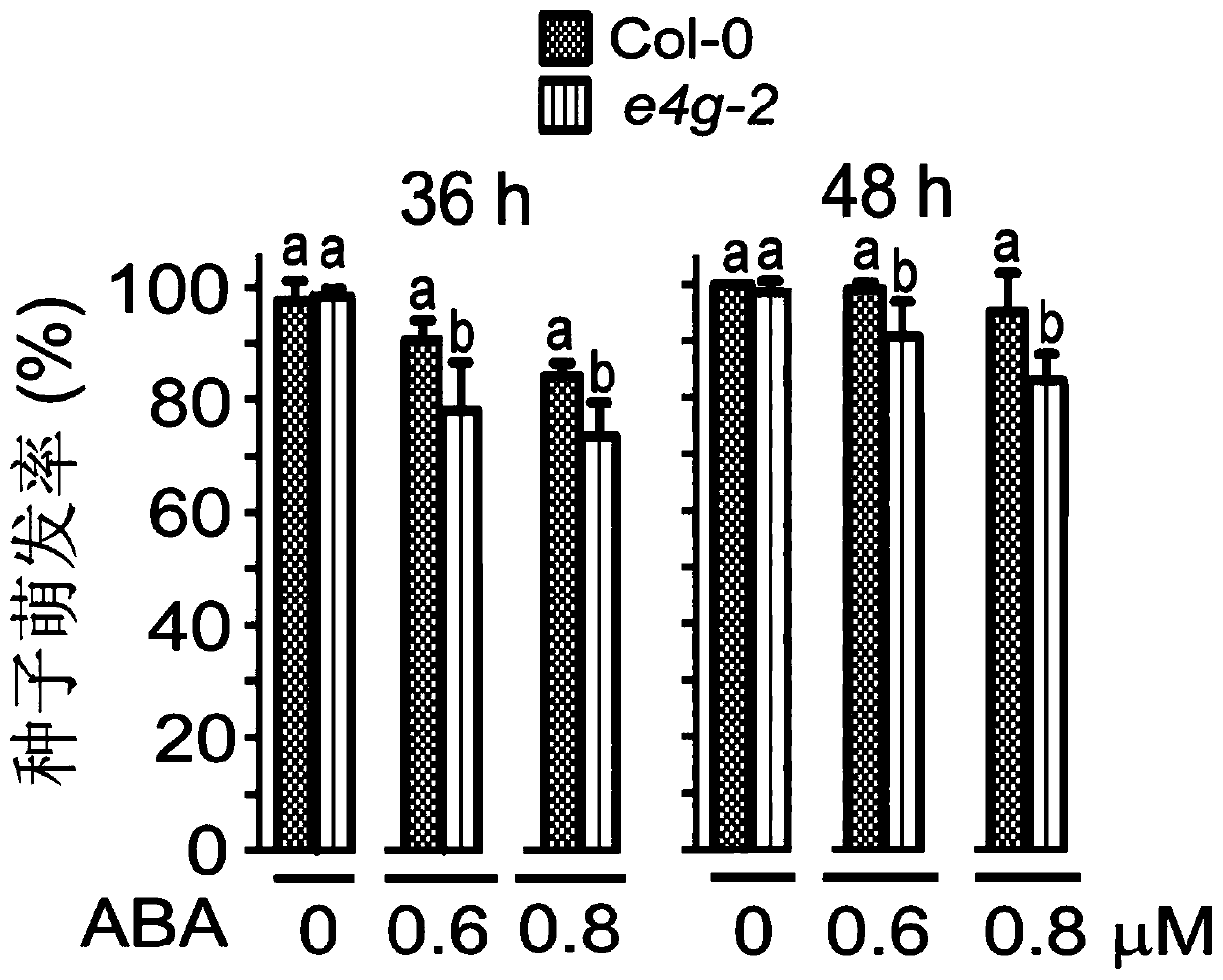Application of eif4g protein in regulation of plant tolerance to ABA
A tolerance, plant technology, applied in applications, plant peptides, plant products, etc., can solve the problems of seed eating quality, storage quality decline, consumption of nutrients and storage substances, loss of agricultural production, etc.
- Summary
- Abstract
- Description
- Claims
- Application Information
AI Technical Summary
Problems solved by technology
Method used
Image
Examples
Embodiment 1
[0064] Embodiment 1, the acquisition and identification of mutants
[0065] 1. Obtaining of mutant e4g-2
[0066] Seeds of Arabidopsis thaliana with the number SALK_136398 (the background is Arabidopsis ecotype Columbia, a T-DNA insertion mutant) were commercially purchased from the Arabidopsis Biological Research Center, and grown into plants. The genomic DNA of the plants at the seedling stage was extracted, and the primer pairs composed of e4g-2LP and e4g-2RP and the primer pairs composed of LBb1.3 and e4g-2RP were used for PCR identification. If the amplified product is not detected by using the primer pair composed of e4g-2LP and e4g-2RP, and the amplified product can be detected by using the primer pair composed of LBb1.3 and e4g-2RP, it proves that the plant has the same two chromosomes homozygous mutant. Homozygous mutants were sequenced for verification.
[0067] e4g-2LP: 5'-AACCTTCTTCGTTCTCTTCGC-3';
[0068] e4g-2RP: 5'-CTGACAACGCCTTAAACGAAG-3';
[0069] LBb1.3:...
Embodiment 2
[0092] Embodiment 2, the tolerance of plant to ABA
[0093] 1. Seed Germination Experiment
[0094] ABA plays an important regulatory role in promoting seed dormancy and inhibiting seed germination. Genetic studies have shown that chromatin remodeling, histone methylation and deacetylation during seed germination are all regulated by ABA. With the increase of exogenous ABA concentration, the germination rate of wild-type Arabidopsis seeds will gradually decrease. Statistical seed germination experiment is one of the important methods to study ABA signal transduction.
[0095] The tested seeds were: seeds of Arabidopsis thaliana ecotype Colombia, and seeds of mutant e4g-2.
[0096] The first group: sow the tested seeds on the MS medium plate, stratify at 4°C for 3 days, then transfer to the light incubator for cultivation, and culture in the light incubator for 36 hours, 48 hours or 72 hours, then count Seed germination rate.
[0097] The second group: Sow the tested see...
PUM
 Login to View More
Login to View More Abstract
Description
Claims
Application Information
 Login to View More
Login to View More - R&D
- Intellectual Property
- Life Sciences
- Materials
- Tech Scout
- Unparalleled Data Quality
- Higher Quality Content
- 60% Fewer Hallucinations
Browse by: Latest US Patents, China's latest patents, Technical Efficacy Thesaurus, Application Domain, Technology Topic, Popular Technical Reports.
© 2025 PatSnap. All rights reserved.Legal|Privacy policy|Modern Slavery Act Transparency Statement|Sitemap|About US| Contact US: help@patsnap.com



